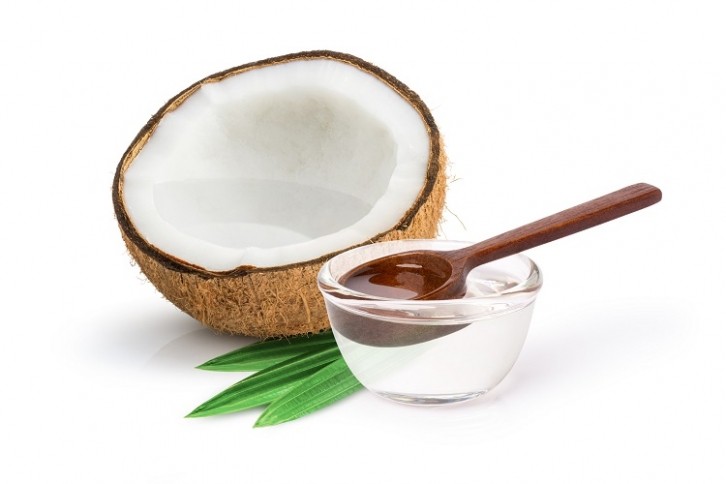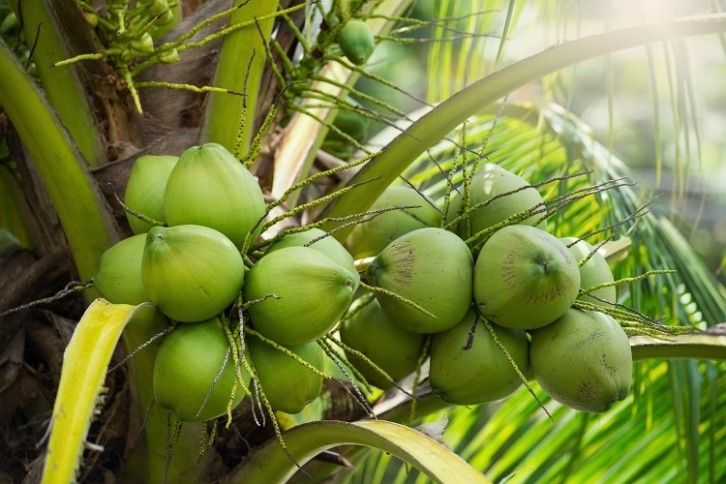Coconuts develop in tropical climates, with greater than 70% of world coconut oil manufacturing popping out of the Philippines and Indonesia. However in contrast to different meals grown within the tropics reminiscent of palm oil, espresso and cocoa, coconut bushes aren’t related to the identical degree of deforestation.
That’s not to say that coconut manufacturing is free from unsustainable practices. Coconut plantations have been linked to biodiversity loss, and based on Gregory Bardies, govt director of the Sustainable Coconut Partnership, farmers are ‘trapped in a vicious cycle of poverty’.
The just lately launched Partnership is on a mission to wipe out unsustainable practices in coconut manufacturing by establishing finest practices, impression programmes, and harmonising {industry} necessities for provide chain companions.
An industry-led partnership for social and environmental sustainability
The Partnership was based by meals and beverage majors starting from Barry Callebaut to Nestlé, Unilever, Ferrero, AAK and Upfield. Affiliate members embody NGOs Earthworm Basis, Kaleka and Proforest, in addition to traceability tech firm Satelligence.
Coconut is a flexible fruit, with meals and beverage manufacturers utilizing its water, milk, oil and flesh in merchandise starting from chocolate to coconut water. Greater than 60m metric tons of coconut are estimated to be produced yearly, a lot of which is for coconut oil.
Though the Partnership formally launched this yr, the initiative was first mentioned again in 2019 whereas Bardies was working in sustainability at Barry Callebaut. Starting to analyze sustainable practices in coconut manufacturing, Bardies famous there was ‘little or no’ public details about different corporations’ strategies. “There was additionally little or no sustainable licensed product,” he informed FoodNavigator.
Conducting due diligence workouts revealed indicators of an ‘impending disaster’ in coconut provide chains, significantly in social sustainability. Most coconut farmers are smallholders, and at a sophisticated age. The following technology desires to maneuver off the farm for a perceived simpler life, defined Bardies. “As a result of farmers aren’t rejuvenating their farms, they’re trapped in a vicious cycle of poverty. They’re amongst the poorest farmers, particularly in Asia.”

And its not nearly social sustainability. Potential environmental sustainability dangers additionally exist, with analysis suggesting coconut manufacturing poses a risk to biodiversity, significantly to vertebrates, arthropods, molluscs, and vegetation. “Potential environmental dangers are a lot, a lot lower than for a few of the different provide chains like palm oil. However nonetheless, they’re issues to contemplate and monitor.
“It’s completely worthwhile and priceless for the sustainability of the {industry} and the wellbeing of tens of millions of individuals within the surroundings to advance on sustainability. That’s the way it began.”
The Sustainable Coconut Partnership turned a proper entity in 2021, with the platform formally launching earlier this yr.
Deforestation: Why is there much less in coconut than palm oil?
So why, if produced in an analogous tropical local weather to different meals linked to deforestation reminiscent of palm oil, cocoa and low, is related deforestation considerably much less for coconuts?
One cause coconut manufacturing is taken into account extra sustainable lies in its farming construction, whereby the overwhelming majority (as much as 98%) is smallholder pushed. Smallholder coconut farmers personal between two and 4 hectares of land, that means their strategy to farming is much less intensive and industrialised in comparison with another provide chains, Bardies informed this publication.
One more reason extra straight linked to deforestation is that coconut bushes are thought-about extra productive over an prolonged interval, advised the manager director. Oil palms are productive for round 25 years, whereas coconut bushes may be productive for greater than 60 years, we had been informed.
“In palm oil…there’s a fixed want for extra, extra, extra. In coconut, there’s a lot much less of this.”
That’s not to say that demand for coconut just isn’t rising, it’s. Manufacturing is ‘barely holding tempo’, confused Bardies. And never only for the meals {industry}: coconut is used to supply cleaning soap, laundry detergent and cosmetics, in addition to biodiesel. Coconut by-products – notably the husk – can be utilized in different tasks, for instance to product charcoal or building supplies.
Bardies doesn’t see better biodiversity danger in coconut cultivation in comparison with different crops, and truly sees alternative for extra sustainable practices given cultivation practices. “In coconut manufacturing you may unfold out the bushes and develop forestry way more simply than in different provide chains…
“[As to] biodiversity, we can’t say there’s zero danger. We’re quantifying a variety of these dangers, however the widespread understanding is that [unsustainable nature of coconut production is mostly linked to] farmer poverty and social points.”
Partnership upgrades constitution with assurance scheme
In bettering the sustainability of coconut manufacturing, the Partnership has set out three important impression areas: growing smallholder farmers’ revenue; enhancing provide chain traceability; and stopping deforestation & local weather change.
In 2020, the Partnership acquired greater than 100 inputs from varied stakeholders engaged straight or not directly in coconut provide chains to develop an industry-wide Sustainable Coconut Constitution. The ambition was to set a world benchmark for sustainable coconut origins.
The primary constitution set out rules and ambitions for sustainability programmes, defined Bardies. “It was a steerage for sustainability programmes. We had been seeing that a variety of sustainability programmes in coconut had been concentrating on a little bit little bit of traceability, perhaps a little bit little bit of surroundings, however not comprehensively addressing all of the ache factors and points within the provide chain.” Whereas the primary constitution sought to alter that, it supplied steerage solely.
Upon realising there remained ‘holes within the racket’, the constitution has been revised to be ‘way more complete’. Unveiled this yr, the constitution now consists of an assurance scheme.
“We’re additionally creating market transformation, which the primary constitution didn’t enable,” defined Bardies. Seeking to provide chains, for instance, the constitution not solely provides steerage for corporations to behave on the bottom, but in addition for tactics to behave as a ‘accountable firm’ to create enabling circumstances for change.
By means of these new rules and ambitions – masking steerage, chain of custody, traceability, reporting, and implementation – the Partnership goals to construct out a brand new assurance system, which Bardies described as a ‘stepwise strategy to current certification schemes that aren’t exhibiting any indicators of choosing up available in the market’.
The choice got here from consultations with stakeholders: 75% of these providing enter contemplate it essential the constitution have a brand new, coconut particular assurance system.
The Partnership’s assurance system is designed to be extra ‘inclusive’ than others in the marketplace, which embody certification, to encourage as many {industry} gamers to affix as potential. The peace of mind system is designed to publicly recognise Members’ progress in sustainability.
As as to if the peace of mind system may additionally result in eco-labelling alternatives to assist higher promote corporations’ work in sustainability, the jury remains to be out. When coconut usually makes up lower than 5% of a completed meals product, it should be determined whether or not speaking that it was responsibly sourced, on-pack, is worth it.


